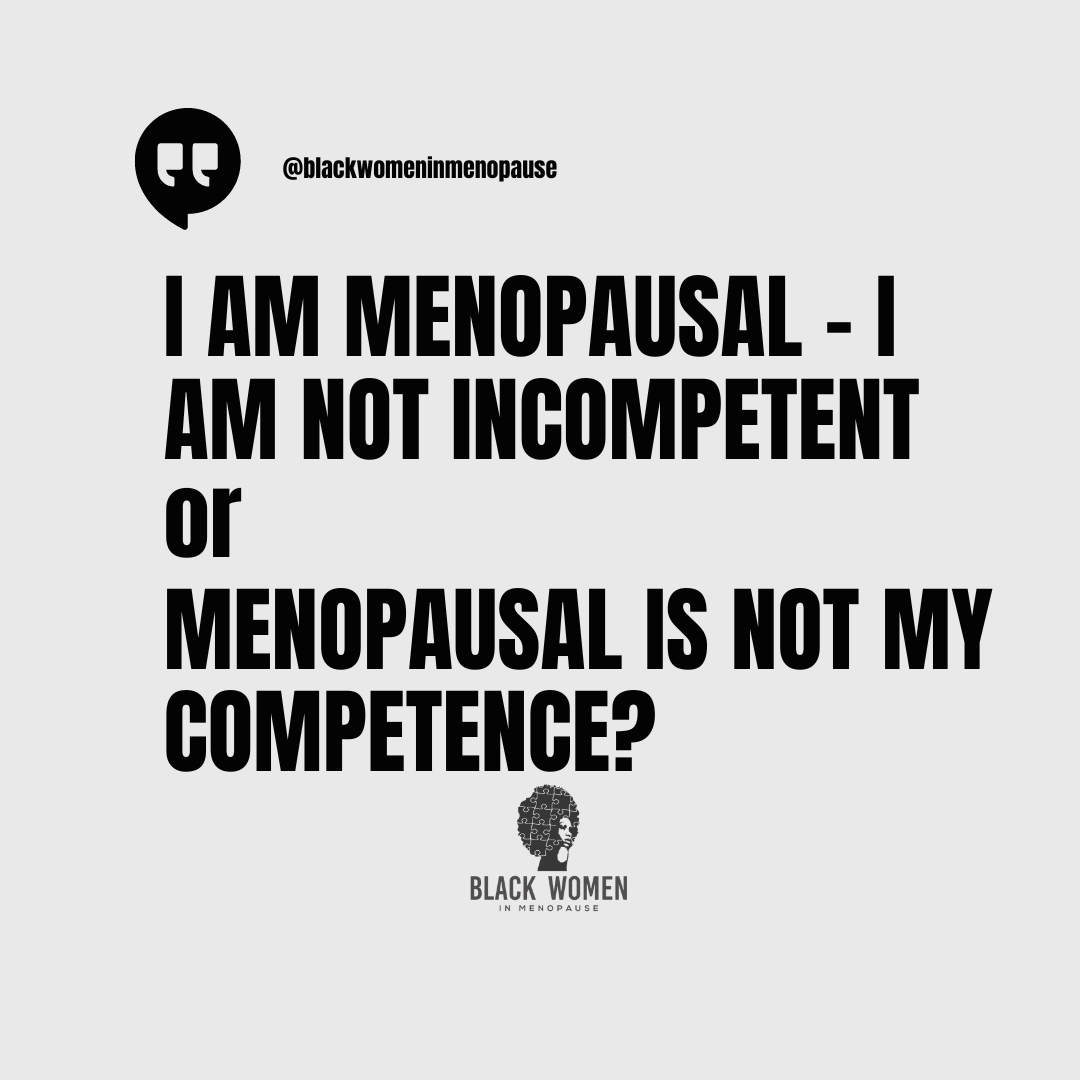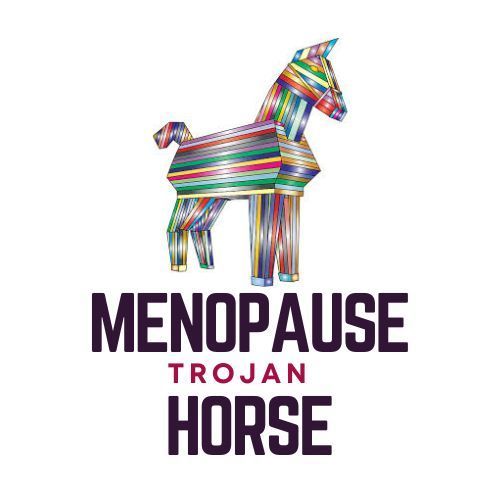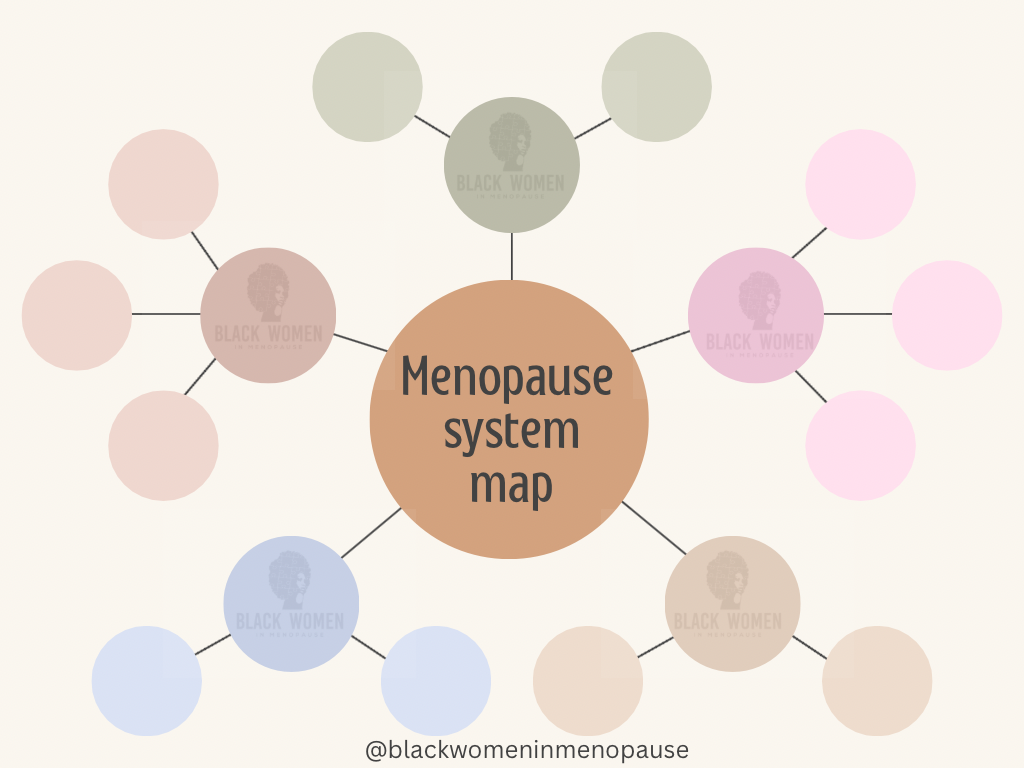The analogy of a “picture in a frame” is about how we perceive and address menopause in society.
Nina Kuypers • 28 November 2024
The analogy of a “picture in a frame” is about how we perceive and address menopause in society. The frame represents the surface-level or dominant narratives - often shaped by limited perspectives, like those of the majority population, particularly white middle class women in this case., and identities.
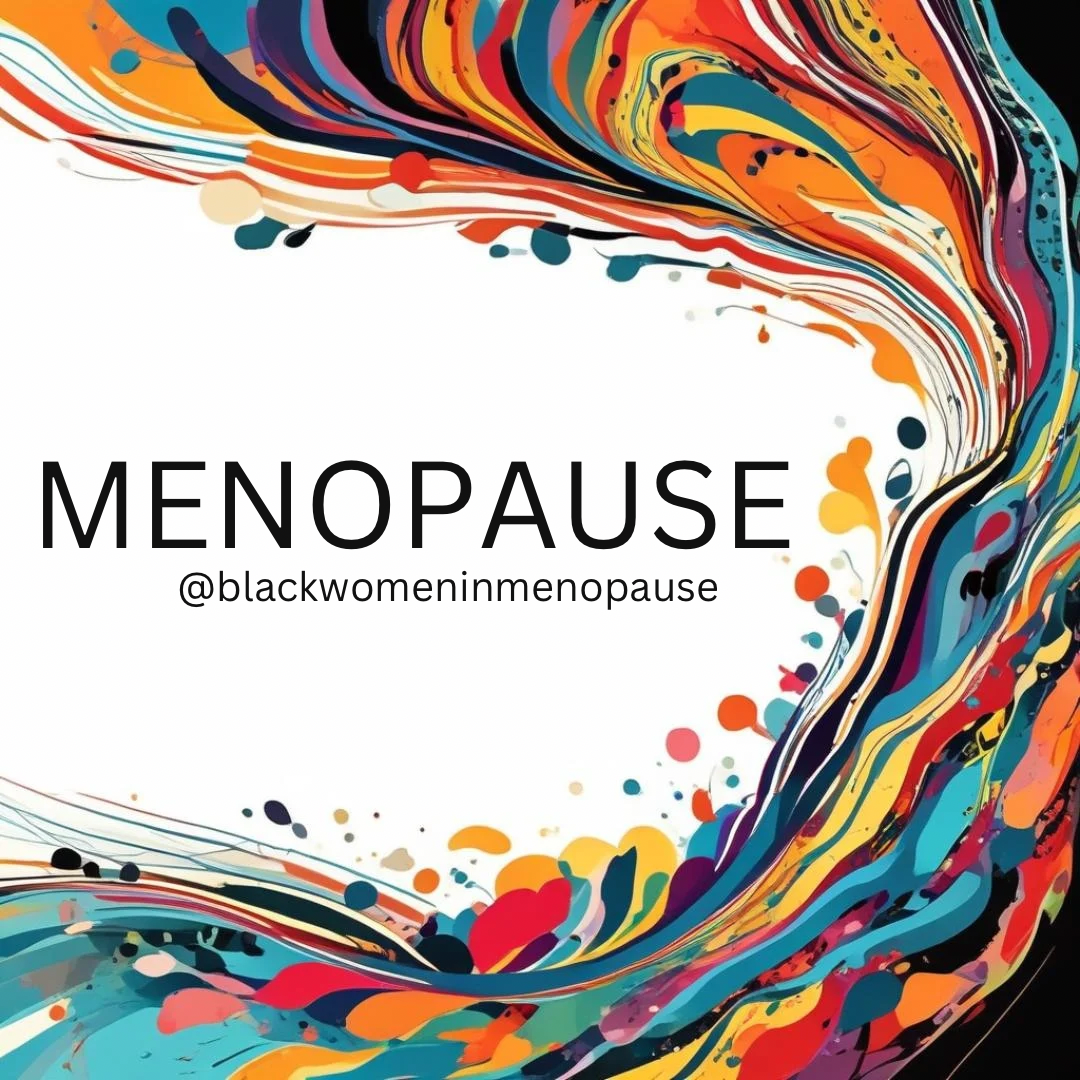
The Frame: The Dominant Narrative on Menopause
Currently, the mainstream menopause conversation often centres on the experiences of white, middle-class women in Western societies. This focus influences media representation, research priorities, and healthcare policies. For example:
• Media representation: TV shows, books, and public discussions about menopause often feature white women, with little mention of the challenges faced by Black, Asian, or LGBTQ+ individuals.
• Medical research: A study published in the Journal of Women’s Health found that clinical trials on menopause hormone therapy overwhelmingly included white participants, making it difficult to generalise findings to other racial or ethnic groups.
• Healthcare disparities: Black women often face higher rates of medical dismissal or misdiagnosis of menopause-related symptoms. For instance, studies show that Black women are more likely to experience severe menopausal symptoms like hot flashes and night sweats but are less likely to be offered hormone replacement therapy (HRT).
The Picture Details: Diverse Experiences of Menopause
When we move beyond the frame and look at the details within the picture, we uncover the rich, varied experiences of menopause, shaped by cultural, social, and biological factors:
1. Cultural perspectives:
• South Asian women may view menopause differently due to cultural taboos or religious beliefs that discourage open discussion about aging and reproductive health.
• In some African cultures, menopause can be seen as a rite of passage, but stigma around seeking medical help persists.
2. Healthcare barriers:
• LGBTQ+ individuals often face unique challenges during menopause. For example, trans men undergoing menopause might not feel comfortable seeking care due to discrimination or lack of provider knowledge.
• Socioeconomic factors also play a role - women from low-income backgrounds may struggle to access menopause care due to cost or limited healthcare availability.
3. Intersectionality of symptoms and misdiagnoses:
• Night sweats, fatigue, and mood swings are often misattributed to conditions like diabetes or depression, especially in women of colour, who are more likely to face diagnostic bias.
• Black women and South Asian women are more likely to enter menopause earlier and experience more severe symptoms, yet they often lack the same access to treatments as their white counterparts.
The Call to Action: Moving Beyond the Frame
The goal is to move beyond the narrow “frame” of menopause discussions and include the diverse “details in the picture” by:
• Improving representation: Sharing stories of menopause from women of colour, LGBTQ+ individuals, and other marginalised groups in the media and public discourse.
• Advocating for inclusive research: Demanding clinical trials and studies that reflect the true diversity of the population. For instance, ensuring that HRT research includes Black and Asian women to understand its efficacy across different groups.
• Equitable healthcare: Training healthcare providers to recognise and address the unique barriers faced by marginalised communities and provide culturally competent care.
By broadening the lens, we create a fuller, richer understanding of menopause -one that serves everyone, not just those within the narrow confines of the frame. This leads to better support, treatment, and outcomes for all.
#blackwomeninmenopause #myblackmenopause

Inspired by M.Gladwell’s Blink, where he explores the power of rapid cognition, those split-second decisions our brains make before we’re even conscious of them. Snap judgments. Thin-slicing. Blink. Gladwell shows how we make instinctive decisions in seconds, often shaped by unconscious bias. It got me thinking about menopause, and how many of us, especially those on the margins, experience it the same way: In a blink, it’s upon us. In a blink, it’s dismissed. In a blink, we’re misdiagnosed. In a blink, we become invisible. For many, the menopausal journey to isn’t just hormonal, it's social erasure. The medical gaze rarely rests gently on our bodies. It scans us through a distorted lens of bias. Gladwell says judgments form before words are spoken, and for Black and marginalised people in healthcare, this rings painfully true. We walk into GP offices, describe symptoms, night sweats, mood swings, brain fog and instead of empathy, we’re handed antidepressants, told to manage stress, or worse, ignored. Not because the data doesn’t exist. Not because the science isn’t there. But because in that blink of a diagnostic moment, assumptions are made. We’re too young. Too strong. Too emotional. Too Black. Gladwell discusses thin-slicing, spotting patterns from thin slices of experience. But what happens when ours are always misread? When our patterns, shaped by different cultural, genetic and historical contexts, don’t fit the dominant model? Menopause in a blink for Black and marginalised people is not just biological. It’s biopsychosocial. It’s racialised. You blink, and the GP assumes you’re exaggerating. You blink, and your night sweats are mistaken for type 2 diabetes. You blink, and your hair loss is blamed on “Black hair practices.” You blink, and someone says, “We didn’t include you in the trial, you’re hard to reach.” This isn’t just about medical oversight. It’s structural bias, baked into the assumptions clinicians make in those first two seconds. And it doesn’t stop at the clinic. It follows us into the workplace, into research, into policy. But blink again. And we’re still here. We’re building communities, creating safe spaces, demanding culturally sensitive care and holding the system accountable for every biased blink that caused pain, confusion, or delay. Blink reminds us first impressions carry weight. But for those of us whose health has been shaped by being misread, we’re taking back the narrative. Slowing the blink. Speaking up when a doctor’s eyes skim over us. Gladwell was right: the blink holds power. But we’ve learned to stretch that second into a rebellion, to plant our feet and say: “Look again.” Because menopause is not invisible. And neither are we. If you’re a clinician, pause and listen. If you’re a patient, know you’re not alone. If you’re an ally, amplify our stories. Together, we can make every blink count, for empathy, for equity, for visibility.
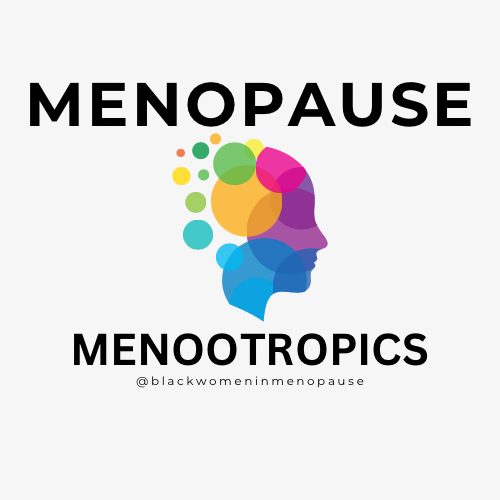
Menootropics - the brand of the future? How long before the nootropics industry tap into or dress up for the meno sphere/ matrix and bring out a menootropics drink/ powder/ pill to prey on those not able to focus. Nootropics are a category of substances and supplements that are sometimes used to enhance cognitive function, memory, and focus. Unlock your menopause potential with the most powerful (men)nootropic blend. It has been designed to make you feel less stressed, less fatigued and more focused. Increase your productivity and focus drinking menootropics brought to you by Black women in menopause (tongue in cheek). We only use research/ evidence backed ingredients. It’s essential to remember that individual responses to nootropics can and will vary, and not all of them are well studied or regulated. Consulting with a healthcare provider/ professional is crucial to determine whether nootropics are appropriate and safe for addressing specific menopausal symptoms. Lifestyle changes, dietary adjustments, holistic therapies, traditional medicine and hormone replacement therapy for example are other options that should be explored in consultation with a healthcare provider/ professional. The commercial aspect of menopause should not overshadow the importance of addressing the medical, emotional, mental, physical, and psychological aspects of this life stage. The practice of “dressing up” products to prey on menopausal individuals is unethical and exploitative. It involves using marketing tactics that take advantage of the challenges and vulnerabilities menopausal people may experience. This can manifest in various ways, such as exaggerating the effectiveness of a product, promoting unproven treatments, or manipulating emotional responses to drive sales. It’s essential for any consumers, particularly menopausal individuals, to be critical and discerning when evaluating products and services marketed for menopause related concerns. They should seek reliable information, consult with healthcare professionals/ providers and be cautious of products that make unrealistic promises or rely on fear based marketing.
